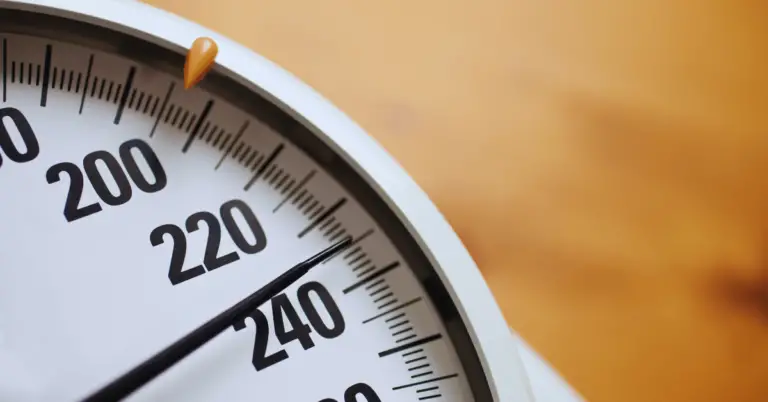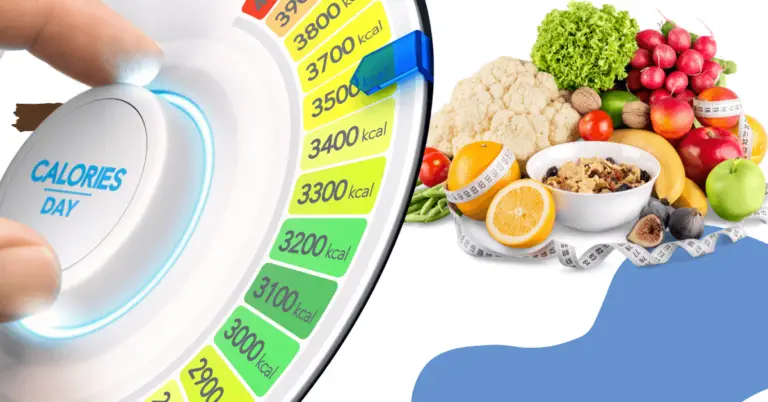How Do People Get Fat? Risk VS Rewards

How Do People Get Fat Easily?
Being overweight or obese has been a problem that individuals have been facing for decades. Being fat could be caused due to many possible conditions. It could be because of genes, dysfunctional metabolic syndromes such as weak blood lipids, high blood sugar levels, and high blood pressure levels. How Do People Get Fat is easy if you fall into the category, but you should then be aware that you do not get obese.
People with such conditions have a higher chance of getting type 2 diabetes and heart attacks. In addition to having such syndromes, people can also become obese due to the content of their diet and daily lifestyle.
Generally, your body’s weight is determined based on the number of calories you eat, how much does your body burn, and how much it uses for storage. However, again this all depends on factors such as environment and genes.
For some people, excess eating might not put on weight due to their fast metabolism, and for some, it can be the total opposite. Therefore it is essential to understand your body and how it reacts and processes the calories you intake.
Reasons Behind People Getting Fat Genetics
Being obese has a robust correlation with genetics. People who have obese parents have a very high chance of becoming obese compared to those whose parents are naturally smart and lean in the physique. However, it does not mean that you are bound to inherit obesity from your parents. Your diet can also play an important role that could contribute and trigger the genes you carry.
Some factors, such as being overweight for most of your life, having obese parents and relatives, and finding it hard to get in shape even after controlling your diet and carrying out exercises, could contribute significantly to triggering those genes.
1. Diet
Regardless of the genes, people who consume junk food like western society, are more likely to become obese. This is also a crucial factor that contributes to getting overweight. It is a known fact that the calories people consume by eating or drink have a very high impact on their health and weight.
It is very important to maintain a healthy diet that has balanced nutrition that results in maintaining your weight and assisting in having healthier organs. It is suggested to consult a nutrition expert that can help you make a diet plan ideal for your body. Food with a high content of carbs, calories, and fat should be avoided as much as possible.
2. Lack Of Exercise
Another important factor that contributes to obesity is a lack of physical exertion, exercise. The calories that are not burned end up being stored in the body and appear to surface on the body, making you look fat.
If you do not have a routine where there is an adequate amount of physical activity such as desk jobs, driving, and riding for commute instead of cycling or walking, then there are high chances of getting obese.
Lack of exercise or physical movement prevents the body from using the energy gained by the Food you consume and instead stores it in the form of fat.
3. Eating Habits
Countless bad eating habits can contribute to increased weight. You should prepare a diet plan with a regime that suits best for your body according to your lifestyle. The number of meals and snacks should have a sufficient and adequate amount of nutrition that your body requires.
You should pay attention to what you are eating and how much you are eating and avoid distractions, like watching TV. You can end up eating meals and snacks in quantity more than your body requires.
You should avoid drinking water at least 30 minutes before consuming a meal. People who consume alcohol should be careful with the number of calories included in beer, wine, and even soft drinks.
4. Sleeping Disruptions
Just as important is maintaining a healthy diet and exercise, it is also important to consider hours of sleep and its patterns to avoid gaining weight. Excess sleeping, less sleeping, and poor sleeping patterns could result in gaining weight.
Lack of sleep will cause the body to release hormones to the stomach that trigger the senses of hunger, signaling the brain demanding Food. Additionally, when you are awake for longer hours, you tend to eat more meals and in-between snacks.
Lack of sleep can also alter your brain when it comes to making decisions. Your brain can not resist the urges of tempting snacks or unhealthy Food with a high content of calories. Poor sleep can also affect your metabolism; lack of sleep can lower your body’s resting metabolic rate. The RMR is the rate and number at which your body burns calories.
5. Certain Medications
There are dozens of FDA approved drugs that have possible side effects; the common type of side effect is gaining weight. Study and research have proven that antidepressant medicines used for depression can contribute to gaining weight over time.
Also, medicines produced for diabetes, schizophrenia, and psychotic disorders have elements incorporated in them that add to gaining weight in the long run. Although these medicines do not affect an individual’s willpower, they alter the way your brain and body function. It can result in increased appetite due to the decrease in the body’s metabolic rate.
6. Hormones
Hormones are affected in different ways that do no good to the body except assist in increasing weight. Obesity is not only about dealing with weight but also battling with hormone imbalance.
There are high chances of imbalance hormones such as excess insulin and cortisol, slow thyroid, estrogen dominance, and low testosterone. These can be prevented by different practices, mainly with prescribed medication, following a nutritious diet and a healthy lifestyle that involves exercising. How Do People Get Fat? this way might be easier but dangerous at the same time.
7. Not Enough Water
Lack of water consumption leads to causing dehydration that can result in gaining more weight. Dehydration can affect the rate of metabolism by reducing it down. The body fails to burn the number of calories and fails to turn the fat into energy.
With the slower rate of metabolism caused by dehydration, you feel hungrier than you should. As a result, you end up consuming more calories and fat, which work go again through the cycle of being stored or transformed into fat.
Drinking water is also a great suppressant for appetite; you feel full most of the time and have less urges for more Food. It is suggested to drinking water at least 30 minutes before consuming a meal and not right before, not during, and not even directly after the meal.
8. Having Irregular Eating Schedule
Having an irregular eating routine is also one of the factors that could lead to gaining weight. The number of meals and snacks should have a sufficient and adequate amount of nutrition that your body requires.
Also, the time of consuming those meals and snacks should not be at odd times, like before going to bed. A study and reach (Chrononutrition) based on the link between circadian rhythms and the body’s metabolism has proved that the metabolic process processes can lead to obesity.
Factors such as digestion, appetite, number of calories, glucose, and cholesterol, follow repeated patterns of every 24 hours. Having an inconsistent schedule of eating can disturb the biological process and result in gaining weight and various health risks.
Benefits Of Healthy Fat
Fats are nutrients similar to carbohydrates and proteins that are vital for the body. Fats are used as energy for the body to absorb vitamins and protect the brain and heart. There are unhealthy fats that lead to health issues, but then there are also healthy fats that help maintain weight, have a healthy mental state, and balance in hormones.
Unhealthy fats such as saturated fats and artificial trans-fat lead to gaining weight, increase the risk of diseases, and clog the arteries. Trans fats are commonly found in dairy products and meat. They raise the bad LDL cholesterol levels and reduce the good HDL cholesterol levels.
That can lead to inflammation, strokes, heart diseases, insulin resistance risking chances of getting type 2 diabetes, and various chronic conditions. Trans fats can be sourced from products such as:
- Bakery products in the market (cookies, cakes, pastries, pizza muffins, and doughnuts)
- Packed or canned snacks (crisps, chips, popcorn biscuits, and crackers)
- Margarine
- Fried Food (breaded fish, breaded chicken, fried chicken, and fries)
Whereas healthy fats, also known as polyunsaturated and monounsaturated fats, are known for improving health conditions, heart health, and cholesterol levels.
These fat tend to increase good HDL cholesterol levels while decreasing bad LDL cholesterol levels. They assist in preventing abnormal or irregular heart beatings and also assist in maintaining low levels of blood pressure. Healthy fats can be found in products such as:
Polyunsaturated Fat
- Fatty fish (sardines, tuna, salmon, trout, herring, and mackerel)
- Walnuts
- Sesame, pumpkin, sunflower, and flax seeds
- Soymilk, soybean, and tofu
Monounsaturated Fat
- Avocados
- Peanut, olive, sesame, and canola oil
- Olives
- Nuts (cashews, pecans, hazelnuts, peanuts, and almonds)
Be Careful Of Obesity!
Obesity is not only a health condition that robs you of your physical appearance, but it also increases the risks of developing other health issues. It can cause cancer, cardiovascular disease, arthritis, non-alcoholic fatty liver, gall stones, and type 2 diabetes.
Obese people under 40 years of age have a high risk of developing cancer than normal-weight people. Studies have shown that obese people under the age 0f 40 have a 70% chance of developing endometrial cancer, a 58% chance of developing renal cell cancer, and a 29% chance of colon cancer (for men).
A bigger body requires the heart to pump out blood harder for supplying blood to all the cells. This could result in developing high blood pressure levels. The excess fats in the body could form around and clog the arteries that could increase the chances of strokes and heart attacks. There are high chances of developing osteoarthritis, which could lead to low physical productivity, disability, and loss of mobility.
Learn more About How To Get Fat Fast
Final Thoughts
Being fat could be caused due to many possible conditions. Generally, your body’s weight is determined based on the number of calories you eat, how much does your body burn, and how much it uses for storage. However, this all depends on factors such as environment and genes.
Being obese has a very strong correlation with genetics. People who have obese parents have a very high chance of becoming obese compared to those whose parents are naturally smart and lean in terms of physique.
It is a known fact that the calories people consume by eating or drink have a very high impact on their health and weight. Lack of exercise or physical movement prevents the body from using the energy gained by the Food you consume and instead stores it in the form of fat.
Excess sleeping, less sleeping, and poor sleeping patterns could result in gaining weight. Obesity is not only a health condition that robs you of your physical appearance, but it also increases the risks of developing other health issues. This way you might know the answer to How Do People Get Fat but implementing these ways safely is the key.






